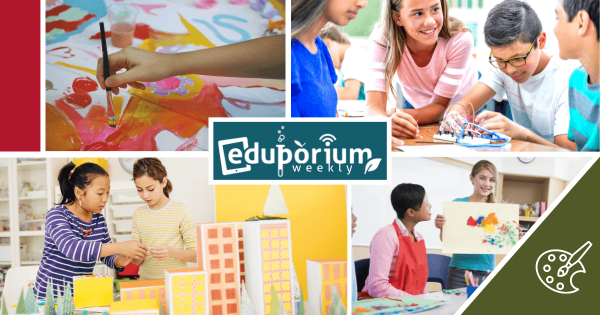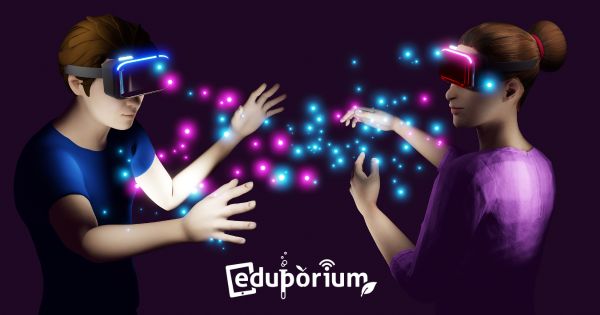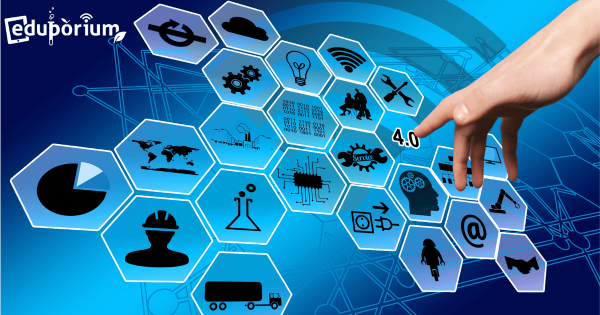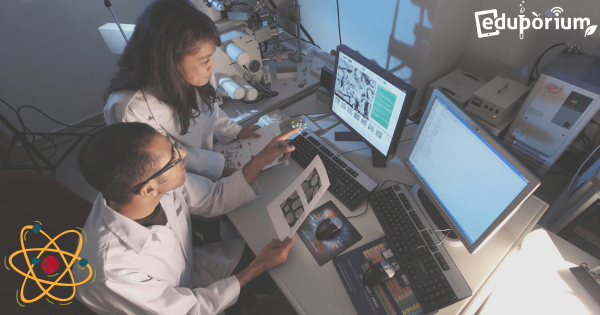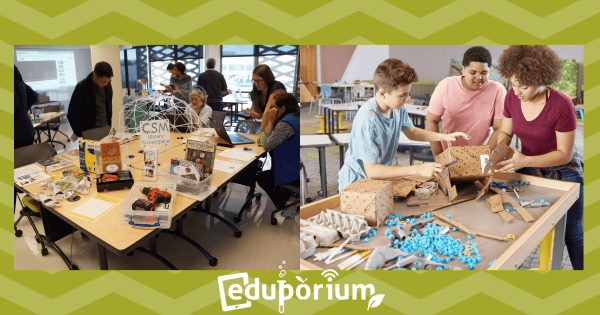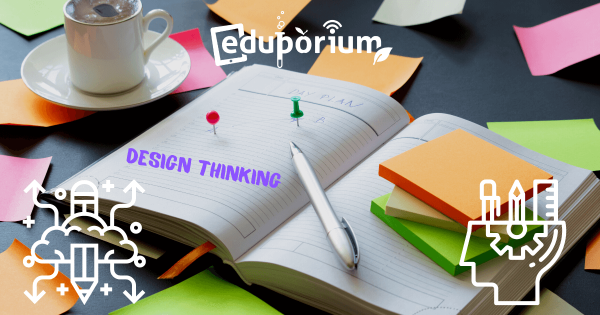While teachers and parents may not notice the benefits clearly for another couple of years, using technology to enhance learning for kindergarteners is actually a pretty wise decision. Adding a new wrinkle to early education can help promote inquiry in students, provide opportunities for beneficial collaboration, and help them start to develop both STEM and soft skills.
Eduporium Weekly
Our longest running current blog series, the Eduporium Weekly is your source for relevant education topics. Whether it's related to EdTech, STEM, SEL, makerspaces, soft skills, equity, CTE, or any number of other things, you are sure to find some relevant content here. Our team remains committed to providing intriguing and up-to-date opinions and perspectives on the most important topics—whether they're technology-based or not. Every week, we share our thoughts about those key topics in education. Giving educators a Saturday morning read, many of our Eduporium Weekly posts reflect recent happenings, important updates, or, sometimes, some fun revelations. We're also very fortunate to serve a community of such committed educators. For that reason, we strive to keep our thoughts and content fresh. And, this section of our blog is a great place to go for just that.
Whatever is happening in education, we believe our committed team members help educators adjust. As we've seen, technology has a place in all types of learning—as long as educators integrate it strategically. As debates and discussions in STEAM and general education evolve, we adapt this content to continually educate, inform, and entertain. Our perspective may be a bit unique but our collective expertise on these topics is always improving. We also encourage you to browse the pages or search for a topic of your interest on the left of your screen. We certainly take pride in being up to date with what teachers are experiencing. From our entire team, we hope this content truly provides you with guidance and inspiration. Check back every weekend, as well, for the latest edition of the Eduporium Weekly.
-
Eduporium Weekly | Using EdTech in Art Class
We’re big fans of STEAM education. Like, really big fans. If you’re not familiar with what the A in STEAM stands for, or even the other four letters for that matter, STEM represents science, tech, engineering, and math with the A added in to represent art and create a more well-rounded 21st century education with opportunities for expression. -
How Teacherpreneurs Can Teach Students Entrepreneurship Skills
The innovation in contemporary education is increasing every day. Schools are using more advanced technologies, like 3D printing, laser cutting tools, and maybe even drones to help impart those necessary skills for the future on their students. Among these key 21st century skills is entrepreneurship since the current gig economy is filled with new opportunities all the time. -
Eduporium Weekly | April Events and Appearances
If you follow us closely, you know March was a super busy month for us. Well, we’re happy to say that April looks to be just about full as well! We regularly get questions about where people can find us, so we thought we’d give you a few options for this month and publicize some of the cool upcoming events -
Eduporium Weekly | Artificial Intelligence and Education
Whether it’s recommending a new show to watch or automatically buying you tickets to see your favorite band, AI is getting scary smart scary fast. It’s even making its way into 21st century education and being used in K-12 schools and higher education across the world. So, what does that mean, how can we prepare, and why is this significant? -
Student-led Learning Builds Real-world Readiness
Students aren’t always guaranteed success by sporting straight A’s on their report cards—they need authentic experiences with real-world projects, coding, and collaborating. They also need to take charge and lead their own learning—and that is why many school districts are ditching the old ways and focusing more on student-led learning. -
Eduporium Weekly | You Got A Library? You Got A Makerspace
These days, teachers and school leaders are doing a lot of repurposing of old tools and one of the biggest makeovers is occurring in school libraries. That’s not to say that school libraries have lost significance in 21st century education. They’re just starting to provide additional opportunities in STEM learning, specifically as makerspaces in schools. -
Eduporium Weekly | School Leadership in the 21st Century
Teachers get a lot of credit for molding Future Ready students, but it’s oftentimes the administrators who work tirelessly to provide teachers with whatever they need to help students excel. The right leadership approach, style, and team can go a long way in creating an innovative school and has an invaluable effect on preparing children for the future. -
Eduporium Weekly | Maximizing Special Education With EdTech
While we realize that there’s a lot of technology for helping kids of all ages learn, we might sometimes forget that there are also tools to help students who learn in different ways. When it comes to school children with learning differences, EdTech tools can help them learn in the same ways they help the average kid learn—grabbing their attention -
Design Thinking as a New Kind of Pedagogy
In the 21st century, those who are most successful are always thinking at least one—sometimes two, three, or four steps ahead. Why? Because they have to. No longer can the most successful workers and students get by on basic skills. The times have changed and now essentially require them to have increasingly innovative skill sets just to survive.





